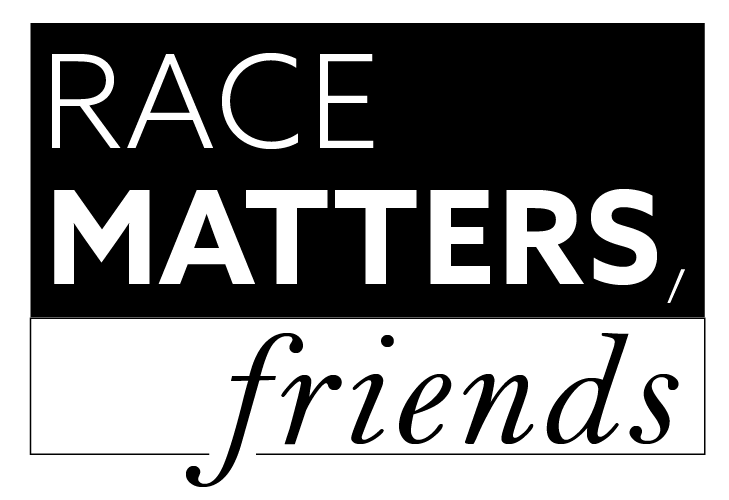Over the past year and a half, our community and country have been focused on issues of race and racism to a degree unseen since protests against South Africa’s Apartheid system in the 1980s and early 1990s. Mentioning a town called “Ferguson” or a group called “Concerned Citizen 1950” in any gathering will start some lively conversation, to say the least.
Public reactions to events and the protests they sparked have run the gamut from threats on social media to “kill all the blacks” to open approval and support of student protesters’ demands for social justice.
Our group, “Race Matters, Friends,” recognizes the legitimacy of calls for justice from communities of color across the nation and right here in Columbia. Some of our members have personally experienced individual acts of racism, as well as institutional ones (and continue to experience them).
Others of us have husbands, wives, or children who live with almost daily reminders that their skin color is a discomforting presence to the dominant white culture. We listen to their stories and strive to learn more about the historical roots of the concept of race, as well as the acts of systemic and individual racism from which others have often told them to simply move on or to “get over it.”
We realize that some in our community think “systemic racism” is a term that was made up by black students or administration officials on the University of Missouri campus. Others believe individual racism is not a big problem anymore and that the best way to eliminate that which remains is to stop talking about it. Race Matters, Friends disagrees. This piece is the first in a series of opinion pieces through which our group hopes to shed some light on misconceptions about racism and its continued impact on minority communities, specifically black communities.
MISCONCEPTION #1: Civil-rights laws passed in the 1960s leveled the playing field and put black people on an equal footing with white people. Everyone in the United States, no matter their race, has identical opportunities to achieve and succeed. So if black people don’t have good jobs, access to high-quality education, and safe neighborhoods now, it is because they are not hard working or just don’t care.
CORRECTION: For more than 200 years (1600s through the mid-1800s) in what was to eventually become today's United States of America, the economic activity of the majority of white individuals and families contributed to their own wealth — wealth that could be passed onto future generations. During that same period, all labor performed by slaves and their families contributed to the wealth of whites. After emancipation, former slaves received no compensation for their years of unpaid forced labor and horrific treatment. What they did get was 100 years of Jim Crow: segregation laws that included malicious governmental policies and tactics designed to ensure that people of color would not have equal access to good jobs and public education, nor the ability to buy affordable housing in safe neighborhoods.
While the Civil Rights Movement of the 1960s resulted in the dismantling of Jim Crow laws, the 50 years since is a fraction of the time needed to overcome 300 years of unequal conditions produced by slavery and discrimination. Additionally, biased and discriminatory practices still operate in many systems of employment, education, housing, and criminal justice today ("systemic racism").
In future pieces, Race Matters, Friends members will provide historical and contemporary data about some of those practices and their impacts on the Columbia community. The first article will discuss disciplinary practices in educational systems that result in higher rates of black students being punished for the same infractions committed by white students and other factors contributing to the achievement gap.
MISCONCEPTION #2: No one alive today had slaves or helped to make the Jim Crow laws. No one chooses what color they are born. So all of this color and racism talk by groups like Race Matters, Friends, serves no purpose except to make matters worse by encouraging black people to get angry and white people to feel guilty or ashamed.
CORRECTION: We at Race Matters, Friends agree that like the old Billy Joel song says, “We didn't start the fire.” As mentioned, the destructive fire of racism has been burning for centuries. However, it was the inability of our ancestors to take honest stock of the plight of freed slaves and to address the inequities in any meaningful way 150 years ago that brings us to this place today. Feeling guilt or shame due to the accident of our birth as people who are identified as “white” serves no purpose. Many of us in Race Matters, Friends are white. We realize that neither feeling is productive.
Change is produced first when we step across racial divides and have hard, honest, and often uncomfortable conversations about the very real inequities between whites as a group and people of color. After the conversations, we must then roll up our sleeves and work side-by-side to make our community and country places that truly exemplify the timeless creed of “liberty and justice for all” that most of us grew up believing in and that made us proud to be Americans.
Our hope is that the information we present will stimulate constructive dialogue, answer some questions, and provide some new resources for readers around questions of race, racism, and equity. We welcome anyone who would like to partner with us, to come join us to not only discuss problems but also to work on solutions that will set our country on the path to being an even greater nation. The future of all of our children depends upon it.


